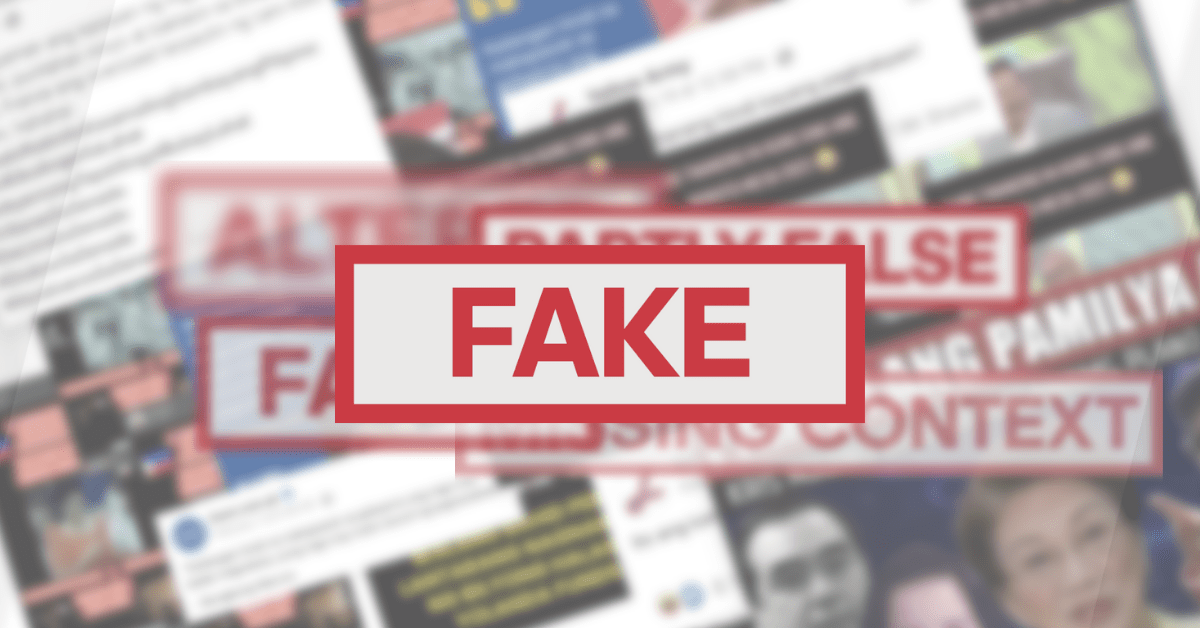
MANILA, Philippines – When “microcelebrities” and influencers claim space on social media, their attempts to position themselves as authoritative sources of information must be scrutinized because this affects how Filpinos trust their online sources of information.
This was among the key findings of the study conducted by De La Salle University Professor Cheryll Ruth Soriano and Singapore Nanyang Technological University Professor Edson Tandoc Jr. titled, ‘Scaffolding our notions of trust.’ The study was tackled during the first #FactsFirstPH research briefing on Friday, March 11, 2022.
“Some ‘microcelebrities’ do not directly say things, but seed doubt by punctuating their headlined accusations with question marks. This prods viewers to do further fact-finding, but of course leads them to other videos and content that further fan the doubt,” Soriano and Tandoc wrote.
Soriano and Tandoc also raised points on how seeded online content can point to specific media targets, furthering attacks against information gatekeepers such as journalists.
The study was premised on a strong point: There has to be a shift from the question “Did you check the source of information?” to “Why and how have you come to trust that source of information and distrust others?” in combating disinformation.
The shift from a simple yes-or-no question to a how-and-why question “requires a radical questioning of our epistemic past and present amid the dynamic digital
environment and expanding social networks where trust can be both reinforced and manipulated,” Soriao and Tandoc wrote.
The current study is a continuation of Soriano and Tandoc’s previous work in 2019, with additional insights on historical distortion on YouTube and the role of “microcelebrities” as emerging authoritative figures on social media.
The 2019 interviews found that young people generally trust themselves to make the distinction between real and false content by checking the source of the evidence, but what they count as evidence they trust needs further probing.
The new in-depth study lists the following findings:
- As access to social media expands, more people are taking the stage to speak and acquire authority. While this may be beneficial, this puts the public at risk as these authoritative voices by microcelebrities can be used by forces to advance a political agenda.
- The social media environment encourages continuous content creation, but also blurs responsibility and accountability. Some of the microcelebrities successfully deflect scrutiny from their questionable practices.
- Mimicking news when creating dubious content based on questionable sources becomes an avenue for doubt- and gossip-seeding. This is a creative strategy by microcelebrities that uses coded and vague language in the titles, headlines, and even body of the content to evade accountability.
- Microcelebrities create a credible image by saying that their content is the product of careful and in-depth fact-finding. At the same time, they also cast doubt and hostility toward information gatekeepers such as journalists.
#FactsFirstPH is an initiative among groups and media organizations that aims to promote truth and fight disinformation as the election approaches. Its research arm releases weekly pieces about trends and false narratives its members monitor online.
About the Authors of ‘Scaffolding our notions of trust’
Cheryll Ruth Soriano, PhD is Professor at the Department of Communication of De La Salle University, Manila and Research Fellow at the La Salle Institute of Governance. She researches digital cultures, digital politics, and platform labor.
Edson Tandoc Jr., PhD is Associate Professor at the Wee Kim Wee School of Communication and Information at the Nanyang Technological University in Singapore. His research focuses on the intersections of journalism and new technology.